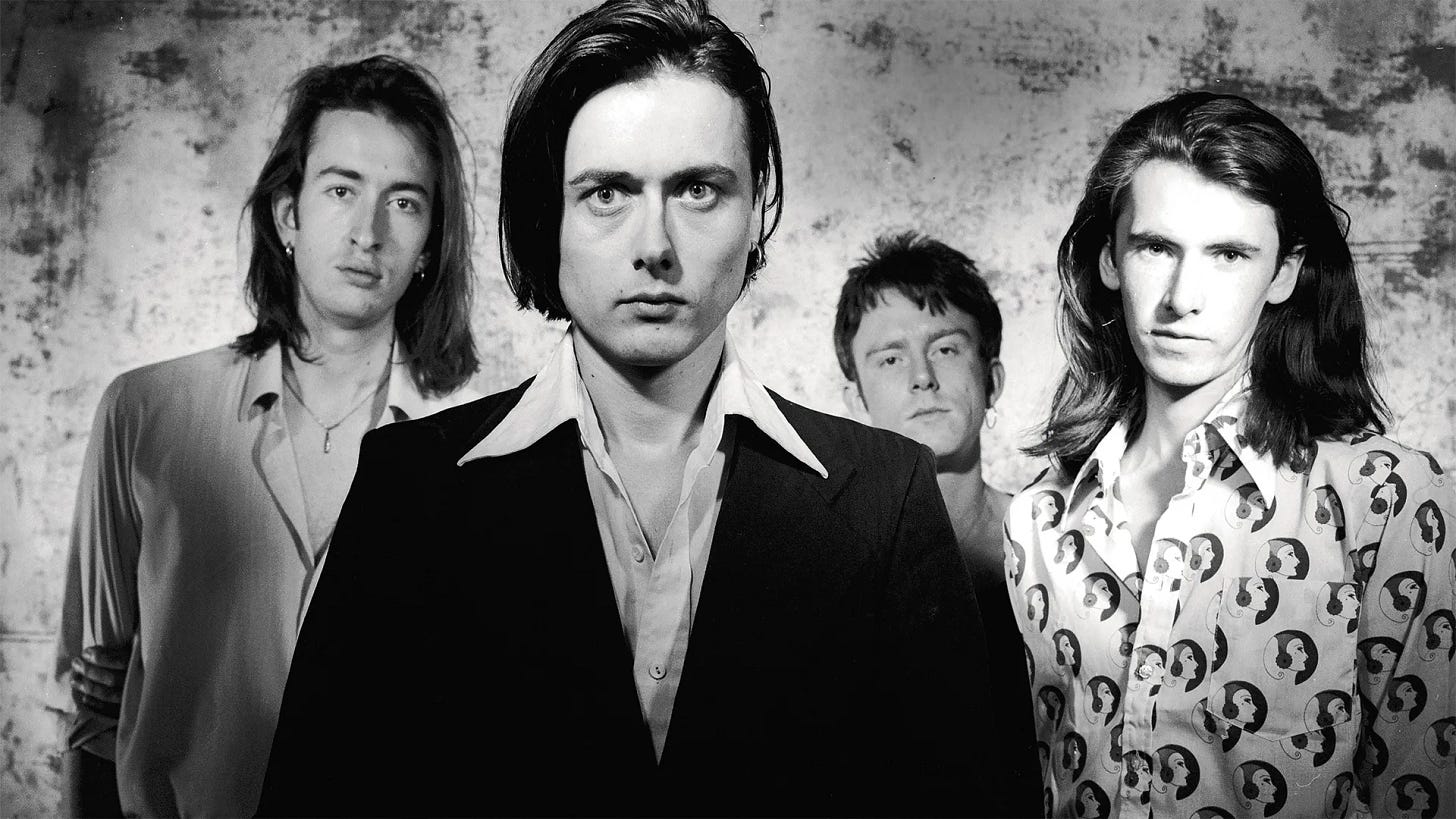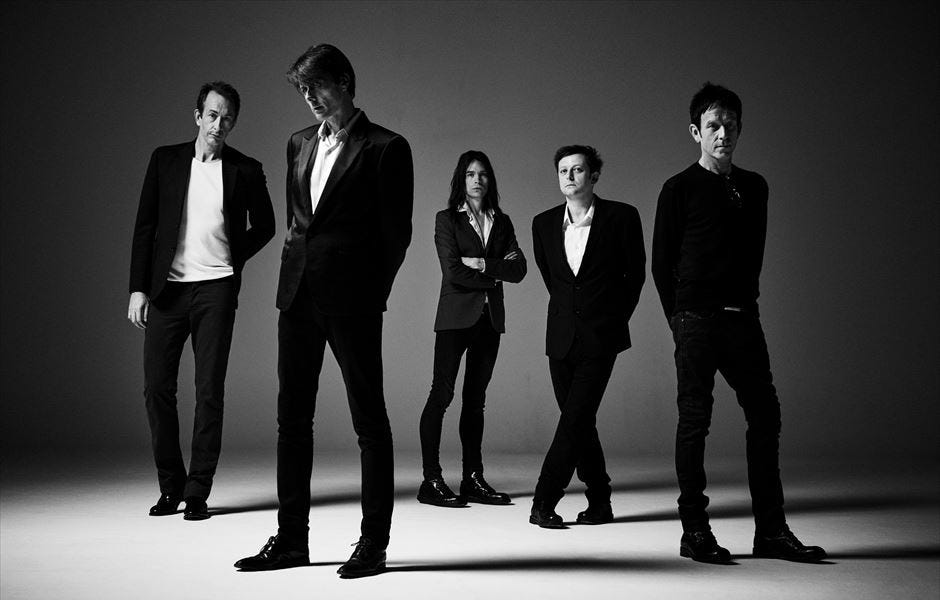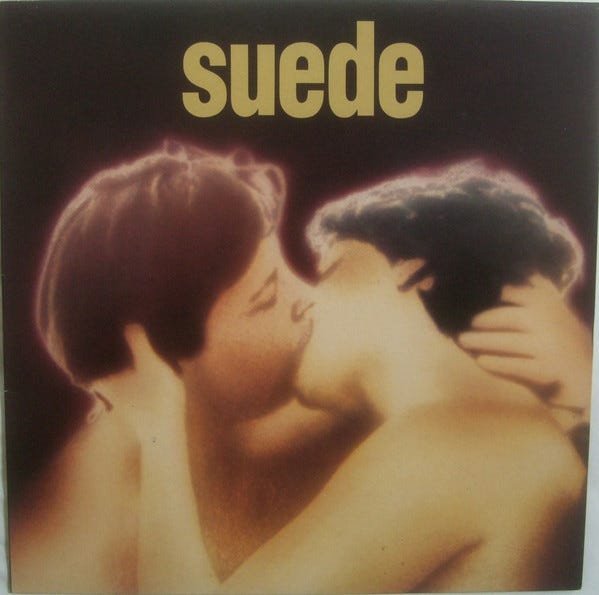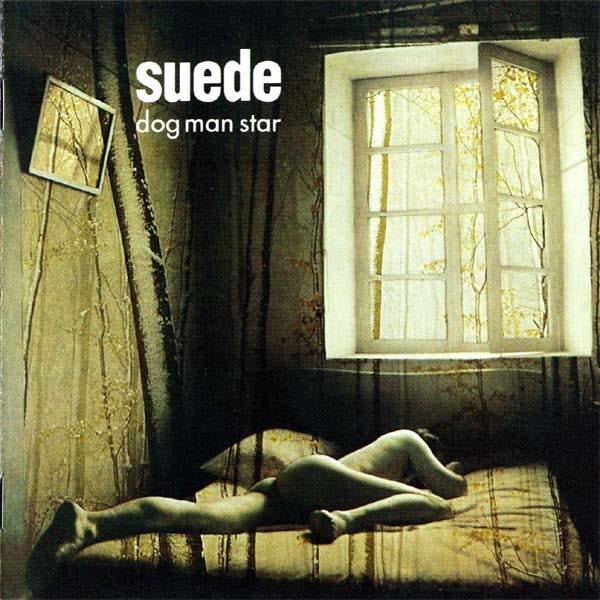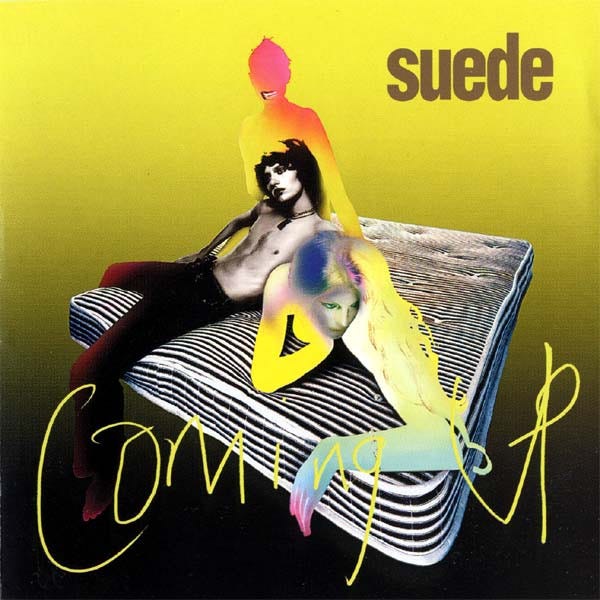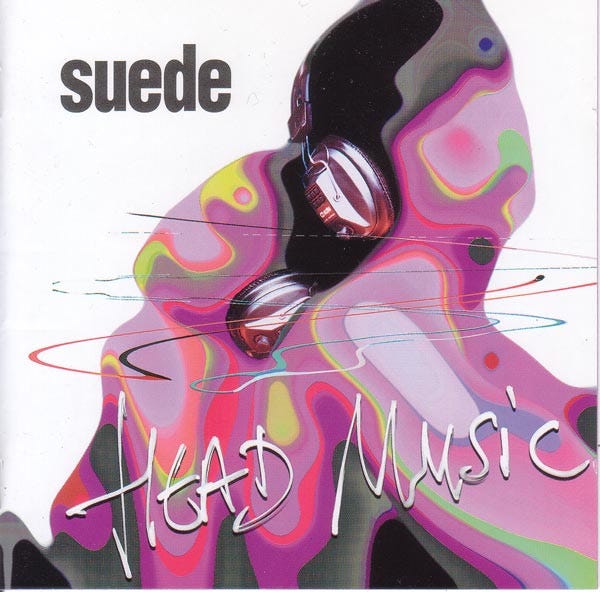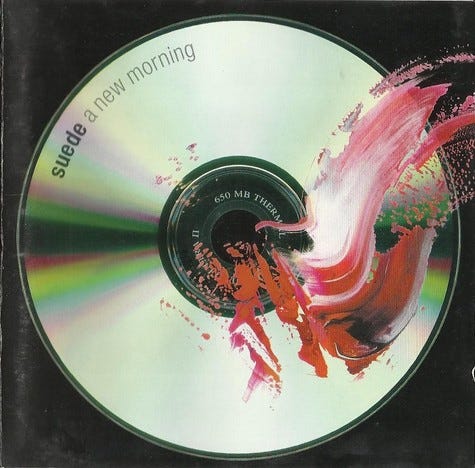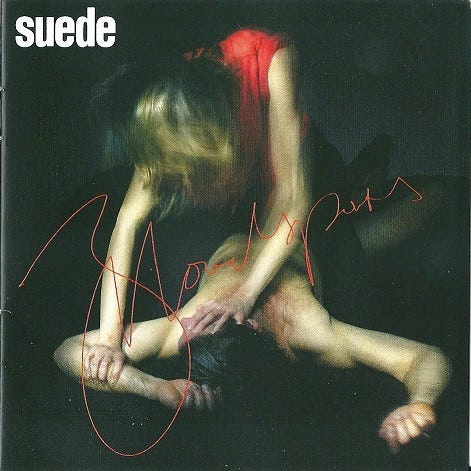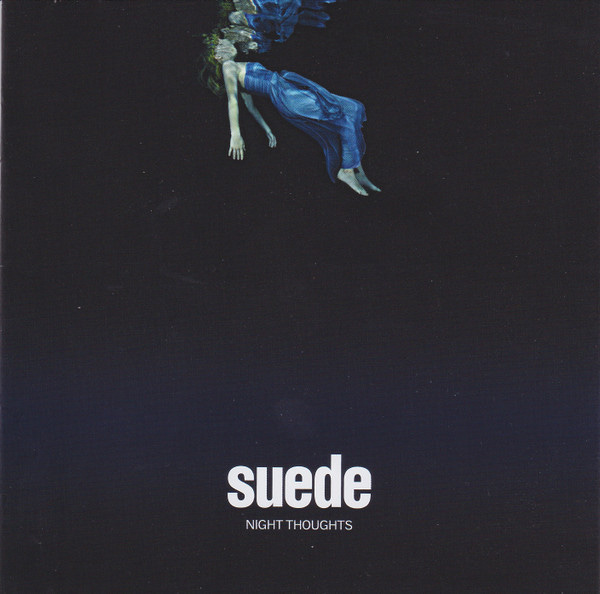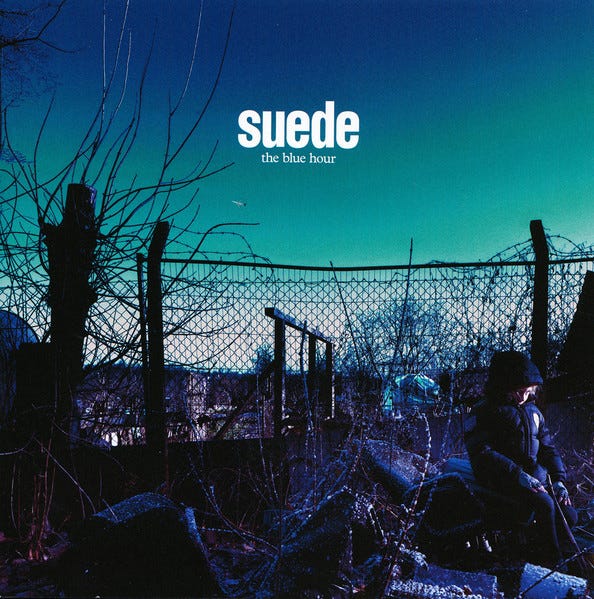Suede
Monday, May 9, 2022
Suede, like the definition of that word, which means leather with a napped surface, is very much descriptive of the band as well. They’re a rock band with overtures to glam, doomed landscapes, and lost young lives. On the surface, they make beautiful melodies by handsome men. But underneath is a filthy world that is rotting due to narcotics and bad choices by usually bored youth living on borrowed time. Suede is a band that I admired but did not love. Now, I’m obsessed with them.
Soundwise, the early Suede, with the co-writer and guitarist Bernard Butler, sounded like a hybrid of T Rex and The Smiths. Geared for the teenager, Suede brought intelligence and good taste to their world. Brett Anderson, songwriter (lyricist for sure), is a beautiful vocalist, and the band behind him snaps with great intensity and density. When Suede came on the scene, I was 39 years old and could easily be a father to that generation. I ignored them; I missed all pop music that decade until I heard Pulp in Tokyo, which snapped me back to the love of contemporary music. I think a lot of music was produced by the young but appealed to the middle-aged. Pulp reminded me of lost opportunities, and Suede put me in the position of peeking out of the window shades to observe youth practicing and living the dream already spent. I feel floating above and looking down when I hear a Suede song.
Suede, theme-wise, is similar to the band of that time, Pulp, in that they both observe their British culture with a flair for journalistic reporting but with an eye for glamour in the wrong places. Brett Anderson is more JG Ballard, and Jarvis Cocker has a touch of P.G. Wodehouse in that he captures young people dealing with their urban culture in a witty manner. There is nothing funny in a Suede song. Pulp is funny and sad. Suede is mostly sad.
Butler made two albums with Suede: Suede and then Dog Man Star. I feel the first album is a good snapshot of London life in 1993. Matt Osman and Simon Gilbert are the rhythm section, and they are excellently suitable for the guitar dynamics of Butler and Anderson’s voice. Those two are like a costly feather mattress set as the foundation for the sonics of Butler and Anderson’s flavoring on the top. The cover of two individuals kissing has no trace of gender, and it can mirror the viewer however they want to see it. But that graphic on the cover fits the sounds on the album. Suede is very much the child of Ziggy Stardust and Diamond Dogs. With a touch of T Rex’s Electric Warrior and early Smiths thrown into the mix. But Suede makes it their sound and identity. Whenever Brett opens his mouth, it is distinctly Suede.
I don’t know if Suede’s second album, Dog Man Star has anything to do with Stan Brakhage’’s series of films, Dog Star Man, but the only connection I can make is that both are about a journey of some sort. The framework of Dog Man Star is very much like a concept album in that the song deals with loneliness with Anderson’s poetic way of looking at the world. He has commented that neither the films of Brakhage nor the title had anything to do with the album or its writing, but still, both works convey a journey. The film is about a man on a snowy mountain who is there to chop down a tree, and with that comes numerous mystical and poetic visions. Dog Man Star is different from the first album in that the compositions by Anderson and Butler are not straightforward and play with the impressions of Jacques Brel/Scott Walker with psychedelic overtures. It has been reported that Butler was not happily making this album with the rest of the band. He wanted to have more control and insisted that they either fire the producer Ed Buller or he would leave. The band decided to keep the producer. Perhaps it’s a musical tragedy that Butler couldn’t compromise with the rest of the band for a third album, but on the other hand, maybe this split would be good for everyone involved.
Coming Up, the third album by Suede, is focused on all the strengths of this band. They replaced Butler with guitarist/songwriter Richard Oakes, who initially sounded like a Bernard, but clearly, he had his sound. They also added a keyboard and songwriter, Neil Codling, who visually added a certain amount of beauty, as well as icy keyboards. The “new” Suede removed the doubts that came out of Dog Man Star and, again, focused on London life of various sorts. Songs like Trash can’t help becoming an earworm, with its flowing and heartened choruses that we are all trash to some degree. The first side of the record, starting with Trash, sounds like a greatest hits package, with one memorable song after another. I’m not sure how Brett felt about all of this, but I suspect that many people thought that Suede was very much over after Bernard left the band. Alas, not the case at all.
Head Music came out three years later, and like Coming Up, it has its strong melodies. There is even a Suede song without a Brett lyric called Elephant Man written by Codling that is swell. It didn’t make a difference between their last album, but it was still an enticing listening experience. On the other hand, their next release, three years later, A New Morning, sounded tired, and there was something obviously wrong due that Neil Codling leaving the band at the time for health reasons. It’s an exasperated sound and played by numbers. This was their last album until they grouped again eleven years later for Bloodsports.
If you look at Suede (so far), they have three chapters. The first chapter is the Bernard Butler period, and then their comeback with something extraordinary, and then the third chapter is Suede becoming more theatrical in sound and scope. Bloodsports is a good Suede album, but not a great one. But the next two Night Thoughts and The Blue Hour are pretty remarkable. Indeed, there is a Scott Walker presence, but not on his brilliant level. Still, Brett Anderson and the band have aged well. With respect to Pulp, I feel that band was pretty brilliant and consistent. Suede always worked in a confined manner, but they know how to work with their limits into something true to their vision.
Suede Album Discography
Suede - Suede 1993
Suede - Dog Man Star 1994
Suede - Coming Up 1996
Suede - Head Music 1999
Suede - A New Morning 2002
Suede - Bloodsports 2013
Suede - Night Thoughts 2016
Suede - The Blue Hour 2018
And I would recommend Brett Anderson’s two memoirs. Very well written and interesting:
Coal Black Mornings deals with his youth and the moments of Suede coming to be. Afternoons With The Blinds Drawn is focused on life with Suede. Both are recommended. And the bassist Mat Osman is also a novelist. I haven’t read his book yet, but it looks interesting. Called The Ruins.

